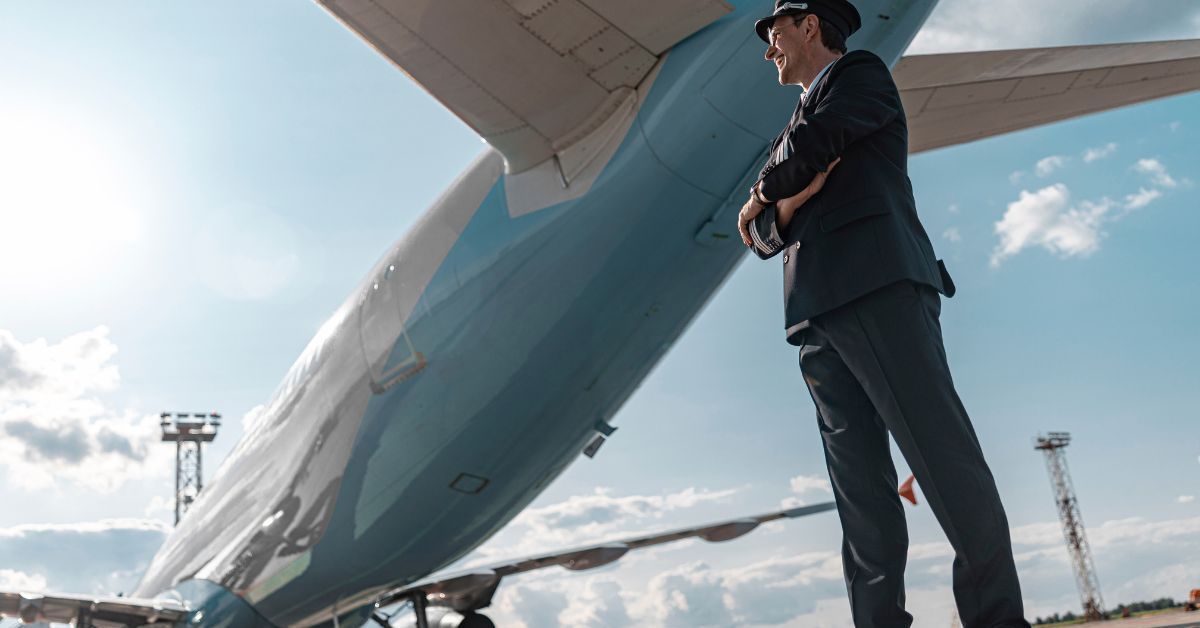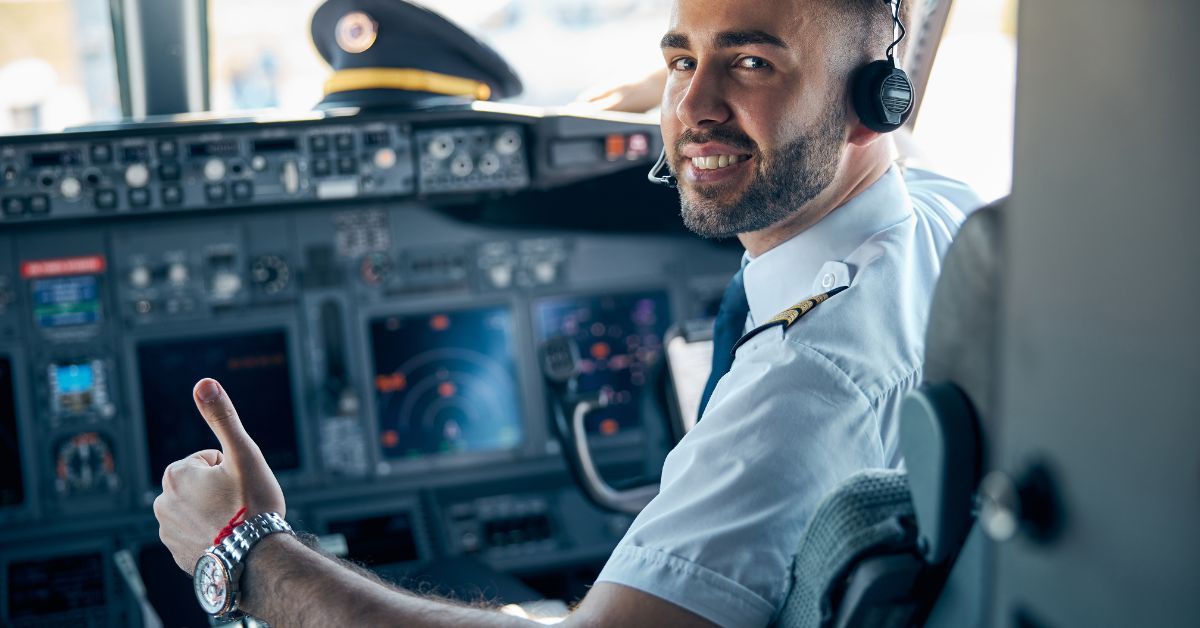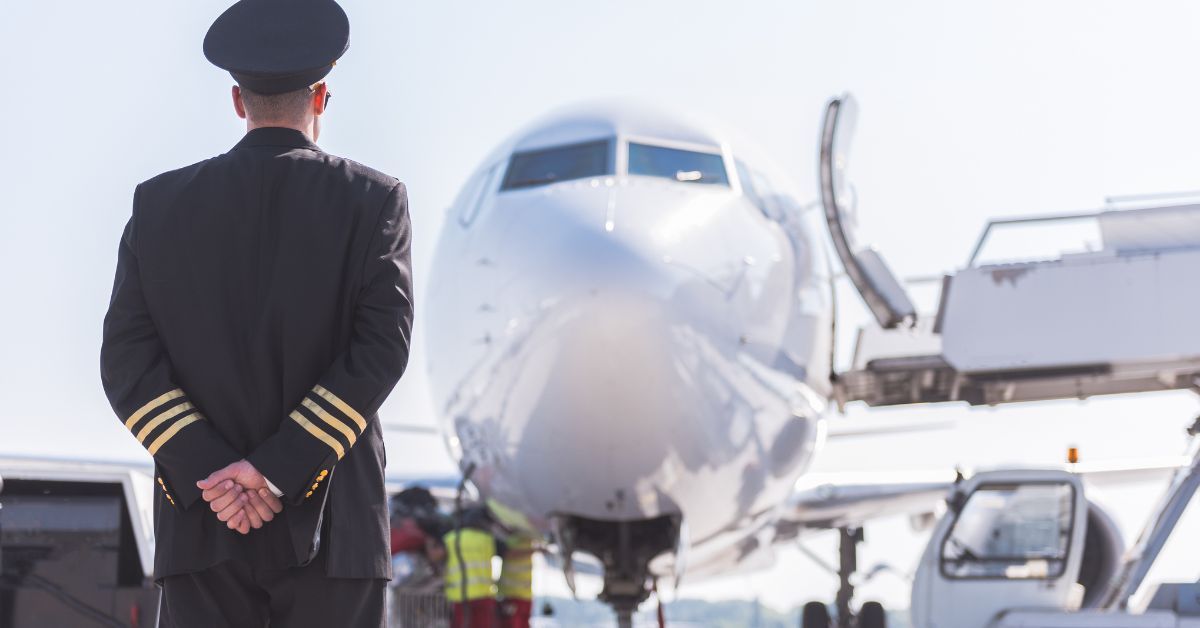An Essential Guide to Becoming an Airline Pilot

For many, the idea of becoming an airline pilot is the ultimate dream. Imagine soaring above the clouds, traveling to new destinations, and experiencing the thrill of flight every day. It’s not just a job; it’s an adventure that comes with immense responsibility.
Pilots are the unsung heroes of the skies, ensuring the safety and comfort of countless passengers. If you’ve always loved airplanes and have a desire to command the cockpit, this guide is for you.
Our essential guide to becoming an airline pilot will help you reach the career heights you’re striving for. With our guide, you’ll gain a clear understanding of what it takes to turn your aviation dreams into reality. Learn the essentials today so that you can progress in your career ASAP.
Educational and Licensing Requirements
Becoming an airline pilot requires a strong foundation in both education and practical skills. There are different paths to achieving this goal, each with a unique set of requirements.
After high school, many aspiring airline pilots pursue a degree in aviation or a related field, which can provide a competitive edge. Moreover, there’s a wide range of licenses to consider as you expand your aviation education.
Operating an aircraft requires you to obtain a pilot’s license from the Federal Aviation Administration (FAA). The most common licenses for airline pilots include the Private Pilot License (PPL), Commercial Pilot License (CPL), and Airline Transport Pilot License (ATPL). Each license has specific requirements, including minimum flight hours, written exams, and practical tests.
The Flight Training Process
Flight training is where the real adventure begins. This phase involves hands-on learning, where you get to experience the thrill of flying firsthand. Initial flight training starts with ground school, where you’ll learn the basic principles of aviation, including meteorology and aircraft systems.
Essential Hands-On Training
Once you have a solid theoretical foundation, you’ll move on to flight hours. During these sessions, you’ll practice takeoffs, landings, and maneuvers under the guidance of a certified flight instructor. Accumulating these hours is essential as they provide the practical experience needed to handle an aircraft confidently.
Another essential form of training is working toward your instrument ratings. During this training, you will focus on flying under instrument meteorological conditions (IMC), where you’ll have limited visual references and must rely on cockpit instruments.

Gaining Experience
Experience is a critical factor in becoming a successful airline pilot. After obtaining your initial licenses, the next step is to build flight hours and gain diverse flying experiences.
Airline pilots also need to be well-versed in various commercial pilot roles. These roles range from operating regional flights to handling long-haul international routes. Each type of flying comes with its own set of challenges and experiences, contributing to your overall growth as a pilot.
Networking with experienced pilots and joining aviation communities can also provide valuable insights and opportunities. Engaging with the community allows you to learn from others, share experiences, and stay updated on industry trends.
Exploring the Job Market
No job market is easy to navigate, so becoming an airline pilot requires patience and persistence. Staying informed about industry trends is crucial. The aviation industry is constantly evolving due to technological advancements and changes in regulations. Being adaptable and staying updated on these changes will enhance your employability and career prospects.
Building a strong resume and showcasing your skills and experiences can set you apart in the competitive job market. Highlighting your flight hours, certifications, and any additional training or endorsements can make a significant difference.
Building a Strong Career Profile
A strong career profile is essential for standing out in the competitive aviation industry. Start by creating a comprehensive resume that highlights your education, flight hours, certifications, and any relevant experiences. Tailor your resume to showcase your strengths and align with the specific requirements of the airlines you’re targeting.
Networking plays a crucial role in career advancement. Attend aviation events, join professional organizations, and connect with industry professionals. Building a network of contacts can open doors to job opportunities and provide valuable mentorship and guidance.
Preparing for pilot interviews is another critical step. Research the airline, understand their values, and practice common interview questions. Demonstrating your knowledge, skills, and passion for aviation can leave a lasting impression on potential employers.

The Rewards of Being a Pilot
A comprehensive guide to becoming an airline pilot isn’t complete without highlighting what makes the job so rewarding. Becoming an airline pilot is a challenging yet rewarding career. The sense of accomplishment and pride that comes with commanding an aircraft is unparalleled.
Pilots enjoy the opportunity to travel the world, experience different cultures, and witness breathtaking views from the cockpit. Additionally, pilots have the chance to make a positive impact on passengers’ lives by ensuring their safety and comfort.
While the path to becoming a pilot requires dedication and hard work, the rewards far outweigh the challenges. The sense of fulfillment, the thrill of flight, and the opportunities for personal and professional growth make it a truly remarkable career choice.
Pursue Your Career Today
The journey to becoming an airline pilot is an exciting and fulfilling adventure. Each step brings you closer to achieving your dream, from the initial educational requirements to navigating the job market. By building a strong career profile, staying informed about industry trends, and networking with professionals, you can enhance your chances of success. Remember, the sky isn’t the limit; it’s just the beginning.
Take the first step today by exploring flight training programs, connecting with aviation communities, and immersing yourself in the world of aviation. At Arapahoe Flight Club, we offer commercial pilot training for aviation enthusiasts ready to begin their careers. The rewards of being a pilot are waiting for you.
For more detailed information and personalized guidance on your path to becoming an airline pilot, consider reaching out to one of our experienced aviation mentors. They can provide valuable insights and help you chart a course toward a successful aviation career. Fly high and chase your dreams—the sky is yours to conquer.
